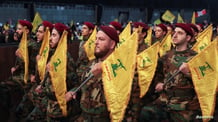After a hiatus due to the coronavirus pandemic, the Lebanese resume the protests following the death of a protester in the northern city of Tripoli, the second largest in the country.
On Wednesday, April 29, protesters returned to the street, throwing Molotov cocktails and rocks at security forces, who responded with tear gas.
The result: wounded by both sides, 40 among law enforcement officers and 50 among protesters.
Lebanon is caught in its worst economic and financial crisis since the end of the civil war (1975-1990). A crisis that was exacerbated with the outbreak in October 2019 of a popular protest against the government, which they accuse of corruption and incompetence. The spark was a tax on voice calls through social networks such as WhatsApp or Facebook, but it ended up having deeper motives such as complaints against the ruling class.
Lebanon’s Tripoli is out of control tonight. Fires burning, shots fired, people injured. The economy is in total free fall, aggravated but not caused by the coronavirus lockdown. People are desperate. https://t.co/kzrqjgIngU
— Liz Sly (@LizSly) April 27, 2020
The protest movement has convulsed the entire country in its demand for a reform of the political system and the resignation of its leaders.
Protesters forced the resignation of Prime Minister Saad Hariri on October 29, but demand that of everyone else without exception.














